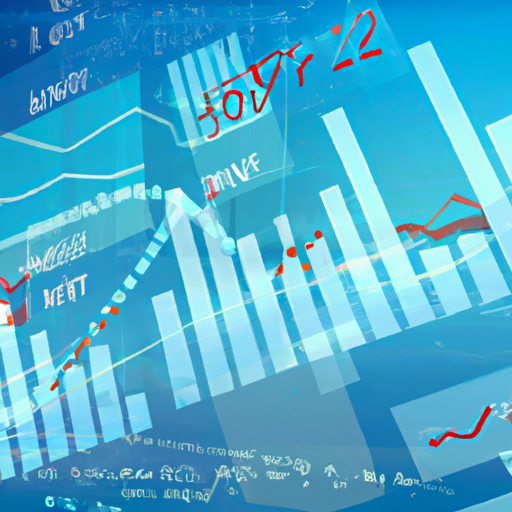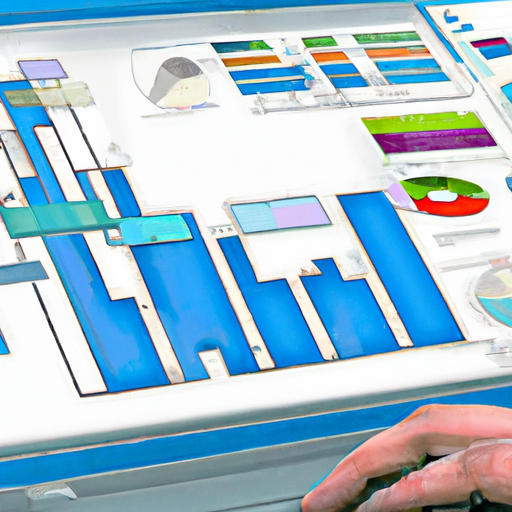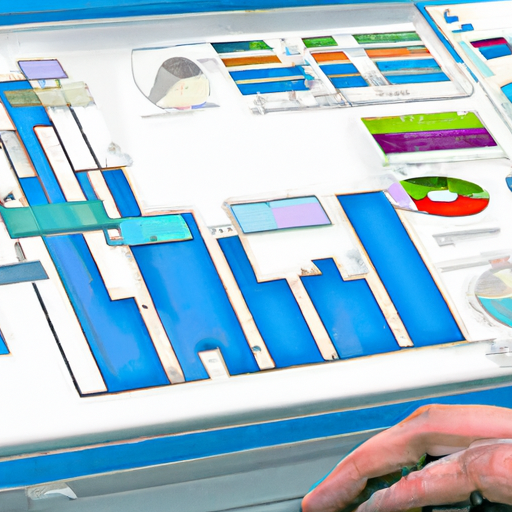Market Research Analysis Software
So you’ve been tasked with conducting market research for your company, but where do you start? With the ever-changing dynamics of the business world, gathering and analyzing data can be a challenging process. That’s where market research analysis software comes in. This powerful tool is designed to streamline the market research process, helping you collect, organize, and evaluate data quickly and efficiently. With its user-friendly interface and advanced features, market research analysis software is the solution you need to make informed business decisions and stay ahead of the competition.

Table of Contents
What is Market Research Analysis Software
Market research analysis software is a type of software tool used by businesses to collect, analyze, and interpret data related to their target market. It helps to streamline the research process and provides valuable insights that businesses can use to make informed decisions. This software is designed to automate and simplify the market research process, saving time and effort for businesses.
Definition
Market research analysis software refers to computer programs and applications that enable businesses to collect, organize, analyze, and interpret data related to their target market. It helps businesses gain a deeper understanding of their customers, competitors, and market trends, which can be used to make data-driven decisions.
Purpose and Benefits
The purpose of market research analysis software is to assist businesses in gathering and analyzing data to gain insights into their target market. By utilizing this software, businesses can make informed decisions about their marketing strategies, product development, and overall business growth.
There are several benefits of using market research analysis software:
Time and Cost Efficiency: Market research analysis software automates the data collection and analysis process, saving businesses time and money. It eliminates the need for manual data entry and analysis, reducing human error and improving productivity.
Data Accuracy and Reliability: By utilizing market research analysis software, businesses can ensure the accuracy and reliability of their data. The software eliminates the risk of human error and provides accurate insights based on data analysis.
Data Visualization: Market research analysis software often includes data visualization features, allowing businesses to present complex data in a visually appealing and easy-to-understand format. Visual representations such as charts, graphs, and maps help businesses interpret data more effectively.
Competitor Analysis: Market research analysis software enables businesses to analyze and compare their performance with that of their competitors. It provides insights into competitor strategies, strengths, and weaknesses, allowing businesses to refine their own strategies accordingly.
Identify Growth Opportunities: By analyzing market trends and customer preferences, market research analysis software helps businesses identify new growth opportunities. It enables businesses to gauge market demand and develop products or services that resonate with their target audience.
Overall, market research analysis software empowers businesses to make informed decisions based on accurate data, optimizing their marketing strategies, improving customer satisfaction, and ultimately driving business growth.
Common Features of Market Research Analysis Software
Market research analysis software typically includes a range of features designed to assist businesses in the research and analysis process. Here are some common features:
Data Collection and Integration
One of the key features of market research analysis software is its ability to collect and integrate data from multiple sources. This feature enables businesses to gather data from various channels, such as surveys, social media, website analytics, and customer feedback. The software aggregates this data into a centralized database for easy analysis.
Data Analysis and Visualization
Market research analysis software includes tools for analyzing and visualizing data. These tools help businesses identify patterns, trends, and relationships within their data. They often include statistical analysis features, such as regression analysis, correlation analysis, and factor analysis, to provide businesses with valuable insights.
Survey Design and Management
Many market research analysis software provides survey design and management tools. These tools allow businesses to create customized surveys and distribute them to their target audience. The software also helps manage survey responses, enabling businesses to collect and analyze data efficiently.
Reporting and Presentation
Market research analysis software includes reporting and presentation features to help businesses communicate their findings effectively. The software allows businesses to generate professional reports, presentations, and dashboards to share with stakeholders. These reports can include visualizations, charts, and graphs to present data in a clear and concise manner.
Competitor Analysis
Market research analysis software often includes features for competitor analysis. These features enable businesses to gather data on their competitors’ performance, strategies, and market share. By analyzing this information, businesses can identify areas where they can gain a competitive edge.
Trend Analysis
Trend analysis is another common feature of market research analysis software. This feature helps businesses identify market trends and anticipate future changes. By analyzing historical data and market indicators, businesses can stay ahead of the curve and adjust their strategies accordingly.
Segmentation
Market research analysis software often includes segmentation features. These features allow businesses to divide their target market into smaller, more homogenous groups based on demographic, psychographic, or behavioral characteristics. Segmentation helps businesses tailor their marketing messages and strategies to specific customer segments.
Overall, market research analysis software offers a wide range of features that help businesses collect, analyze, and interpret data effectively. These features streamline the research process and provide valuable insights to drive business decision-making.

Factors to Consider in Choosing Market Research Analysis Software
When choosing market research analysis software, businesses need to consider several factors to ensure they select the right tool for their needs. Here are some factors to consider:
Budget and Cost
One of the primary considerations in choosing market research analysis software is the budget and cost. Businesses should evaluate the pricing models of different software solutions and determine if they align with their budget. It’s important to consider both the upfront costs and any ongoing subscription fees or maintenance costs.
User-Friendliness
Another important factor to consider is the user-friendliness of the software. Businesses should choose software that is intuitive and easy to learn and use. Complex and difficult-to-use software can lead to frustration and inefficiency.
Data Security
Data security is a critical consideration in selecting market research analysis software. Businesses should choose software that offers robust data security measures. This includes features such as data encryption, user access controls, and regular data backups.
Integration and Compatibility
Businesses should consider the software’s compatibility with existing systems and data sources. It’s essential to choose software that can integrate seamlessly with other tools and platforms, such as CRM systems, data management systems, and marketing automation platforms.
Customer Support and Training
Customer support and training are important considerations when selecting market research analysis software. Businesses should choose a software vendor that offers timely and reliable customer support. Additionally, the availability of training resources, such as user manuals, video tutorials, and online training courses, can significantly impact the ease of implementation and adoption.
Considering these factors will help businesses choose a market research analysis software that meets their specific needs, fits their budget, and provides necessary support for successful implementation and utilization.
Top Market Research Analysis Software in the Market
In the market, there is a range of market research analysis software available, each with its own unique features and capabilities. Here are some of the top market research analysis software options:
Software A
Software A is a comprehensive market research analysis software that offers a wide range of features for data collection, analysis, visualization, and reporting. It includes advanced statistical analysis tools and offers seamless integration with popular CRM systems.
Software B
Software B is a user-friendly market research analysis software designed for small to medium-sized businesses. It offers intuitive survey design and management features, as well as powerful data analysis and visualization tools. It also provides customizable reporting options.
Software C
Software C is a cloud-based market research analysis software that allows businesses to access and analyze data from anywhere, at any time. It offers real-time data analytics and includes advanced segmentation features. It also provides collaboration tools for team-based research projects.
Software D
Software D is a specialized market research analysis software designed specifically for competitor analysis. It provides in-depth competitor profiling and includes features for benchmarking performance, identifying market opportunities, and tracking competitor strategies.
Software E
Software E is an advanced market research analysis software that leverages artificial intelligence and machine learning algorithms. It offers predictive analysis capabilities, allowing businesses to anticipate market trends and customer behavior. It also provides automated data collection and integration features.
These are just a few examples of the top market research analysis software available in the market. Each software has its own strengths and weaknesses, so businesses should carefully evaluate their specific needs and requirements before making a decision.

How Market Research Analysis Software Can Improve Business Decision-Making
Market research analysis software plays a crucial role in improving business decision-making by providing valuable insights and analysis. Here are some ways in which market research analysis software can improve decision-making:
Identifying Customer Needs and Preferences
Market research analysis software helps businesses gain a deeper understanding of their customers’ needs, preferences, and behaviors. By collecting and analyzing data on customer demographics, purchasing patterns, and satisfaction levels, businesses can make informed decisions about product development, pricing, and marketing strategies.
Monitoring Market Trends
Market research analysis software enables businesses to monitor and analyze market trends. It provides insights into emerging technologies, consumer preferences, and industry developments. By staying up to date with market trends, businesses can adapt their strategies and stay ahead of the competition.
Evaluating Competitor Performance
By using market research analysis software, businesses can gather data on their competitors’ performance, strengths, and weaknesses. This information allows businesses to benchmark their own performance, identify areas for improvement, and develop strategies to gain a competitive advantage.
Optimizing Marketing Strategies
Market research analysis software helps businesses optimize their marketing strategies by providing insights into consumer behavior, brand perception, and campaign performance. It allows businesses to identify the most effective marketing channels, messages, and tactics, leading to improved customer engagement and higher conversion rates.
Identifying Growth Opportunities
Market research analysis software helps identify new growth opportunities by analyzing customer needs, market gaps, and emerging trends. It enables businesses to identify niche markets, develop new products or services, and expand into new geographical areas. By leveraging these growth opportunities, businesses can increase revenue and market share.
In summary, market research analysis software provides valuable insights and analysis that can greatly improve business decision-making. By understanding customer needs, monitoring market trends, evaluating competitors, optimizing marketing strategies, and identifying growth opportunities, businesses can make informed decisions that drive success and growth.
Limitations of Market Research Analysis Software
While market research analysis software offers numerous benefits, it also has its limitations. It’s important for businesses to be aware of these limitations to make the most effective use of the software. Here are some limitations to consider:
Data Quality and Reliability
Market research analysis software relies on the quality and reliability of the data it analyzes. If the data collected is inaccurate or incomplete, the insights generated by the software may be misleading or inaccurate. It’s essential for businesses to ensure the data they collect is of high quality and represents their target market accurately.
Limited Knowledge Generation
Market research analysis software provides analysis and insights based on existing data. However, it may not generate new knowledge or uncover insights that were not already known. Businesses should be aware that the software’s capabilities are limited to the data it receives and analyzes.
Lack of Human Insight
Market research analysis software is typically focused on data analysis and lacks the ability to provide human insight and intuition. While the software can provide valuable insights based on data, it may not capture the nuances and context that human researchers can provide. It’s important for businesses to combine the software’s analysis with human interpretation and insight for a more comprehensive understanding.
Data Privacy Concerns
Market research analysis software often requires businesses to collect and analyze customer data. This raises concerns about data privacy and compliance with data protection regulations. Businesses should ensure they have proper measures in place to protect customer data and comply with relevant data protection laws.
Despite these limitations, market research analysis software remains a valuable tool for businesses seeking to gain insights and make data-driven decisions. By understanding these limitations and using the software in conjunction with human expertise, businesses can maximize the benefits of market research analysis software.
Best Practices in Using Market Research Analysis Software
To maximize the effectiveness of market research analysis software, businesses should follow best practices in its implementation and utilization. Here are some best practices to consider:
Define Clear Objectives
Before using market research analysis software, businesses should define clear objectives and goals for their research. This helps ensure that the data collected and analyzed aligns with the desired outcomes. Clear objectives also help businesses measure the success and impact of their research efforts.
Verify and Validate Data
To ensure the accuracy and reliability of the analysis, businesses should verify and validate the data collected. This includes checking for data inconsistencies, errors, or outliers. Cross-referencing data from multiple sources and conducting data cleaning processes are essential for accurate analysis.
Ensure Data Privacy and Compliance
Businesses should prioritize data privacy and compliance when using market research analysis software. They should obtain necessary consent and permissions before collecting customer data. Additionally, businesses should comply with relevant data protection laws and ensure that customer data is securely stored and protected.
Regularly Update and Refresh Data
Market trends, consumer preferences, and industry dynamics are continuously evolving. To maintain accurate and up-to-date insights, businesses should regularly update and refresh their data. Regular data updates ensure that analysis is based on the most current and relevant information.
Combine with Other Data Sources
While market research analysis software provides valuable insights, businesses should not rely solely on this data. Combining the software’s analysis with data from other sources, such as customer feedback, industry reports, and expert opinions, provides a more comprehensive understanding of the market.
By following these best practices, businesses can maximize the effectiveness of market research analysis software and make more informed decisions based on accurate and reliable insights.
Future Trends in Market Research Analysis Software
The field of market research analysis software continues to evolve, driven by advancements in technology and changing market dynamics. Here are some future trends to watch for in market research analysis software:
Artificial Intelligence and Machine Learning Integration
Artificial intelligence (AI) and machine learning (ML) are increasingly being integrated into market research analysis software. AI and ML algorithms can automate data analysis, identify patterns, and uncover insights that may go unnoticed by human researchers. This integration will further enhance the accuracy and efficiency of data analysis.
Real-Time Data Analytics
Real-time data analytics is becoming more prevalent in market research analysis software. The ability to collect, analyze, and interpret data in real-time allows businesses to respond quickly to market changes and make timely decisions. Real-time analytics enable businesses to stay ahead of the competition in a fast-paced market environment.
Predictive Analysis
Predictive analysis is another emerging trend in market research analysis software. By leveraging historical data and AI algorithms, predictive analysis can forecast future trends, customer behavior, and market demand. This enables businesses to proactively plan and adapt their strategies to future changes.
Advanced Visualization Techniques
Market research analysis software is incorporating advanced visualization techniques to present data in more engaging and impactful ways. Techniques such as interactive dashboards, augmented reality, and virtual reality provide immersive data visualization experiences, making it easier for businesses to interpret and share insights.
Big Data Integration
As data volumes continue to grow, market research analysis software is increasingly integrating big data capabilities. The ability to collect, store, and analyze large volumes of data helps businesses uncover deeper insights and make more accurate predictions. Big data integration enables businesses to gain a more comprehensive understanding of their target market.
These future trends in market research analysis software will further enhance the capabilities and effectiveness of market research. By adopting these trends, businesses can stay ahead of the competition, make informed decisions, and drive business growth.
Case Studies: Successful Implementation of Market Research Analysis Software
Here are a few case studies showcasing successful implementations of market research analysis software:
Company A
Company A is a global e-commerce retailer looking to expand its market presence. By using market research analysis software, the company collected and analyzed customer data from multiple online channels. The software’s data visualization features allowed the company to identify customer preferences and tailor their product offerings accordingly. This resulted in increased customer satisfaction and a significant boost in sales.
Company B
Company B is a beverage manufacturer seeking to optimize its marketing strategies. Market research analysis software helped the company collect and analyze data on customer demographics, purchasing patterns, and brand perception. By leveraging the software’s competitor analysis features, Company B gained insights into competitor strategies and adjusted their marketing tactics accordingly. This led to improved market share and increased brand awareness.
Company C
Company C is a software development company launching a new product in a highly competitive market. Market research analysis software helped the company analyze market trends, customer preferences, and competitor strategies. The software’s predictive analysis capabilities allowed the company to anticipate market demand and identify potential obstacles. Company C used this information to refine their product features and target their marketing efforts, resulting in a successful product launch and rapid market adoption.
These case studies highlight the effectiveness of market research analysis software in driving business success. By leveraging the software’s capabilities and insights, businesses can make data-driven decisions that lead to improved market performance and growth.
Conclusion
Market research analysis software is a powerful tool that provides businesses with the ability to gather, analyze, and interpret data related to their target market. By automating and streamlining the research process, this software enables businesses to make informed decisions based on accurate and reliable insights.
Throughout this article, we explored the definition and purpose of market research analysis software, its common features, factors to consider in choosing software, top software options, and its impact on business decision-making. We also discussed its limitations, best practices, future trends, and provided case studies showcasing successful implementations.
In summary, market research analysis software is a valuable asset for businesses seeking to gain a competitive advantage and drive growth. By utilizing this software effectively and combining it with human expertise, businesses can make data-driven decisions that lead to success in an increasingly competitive marketplace.






